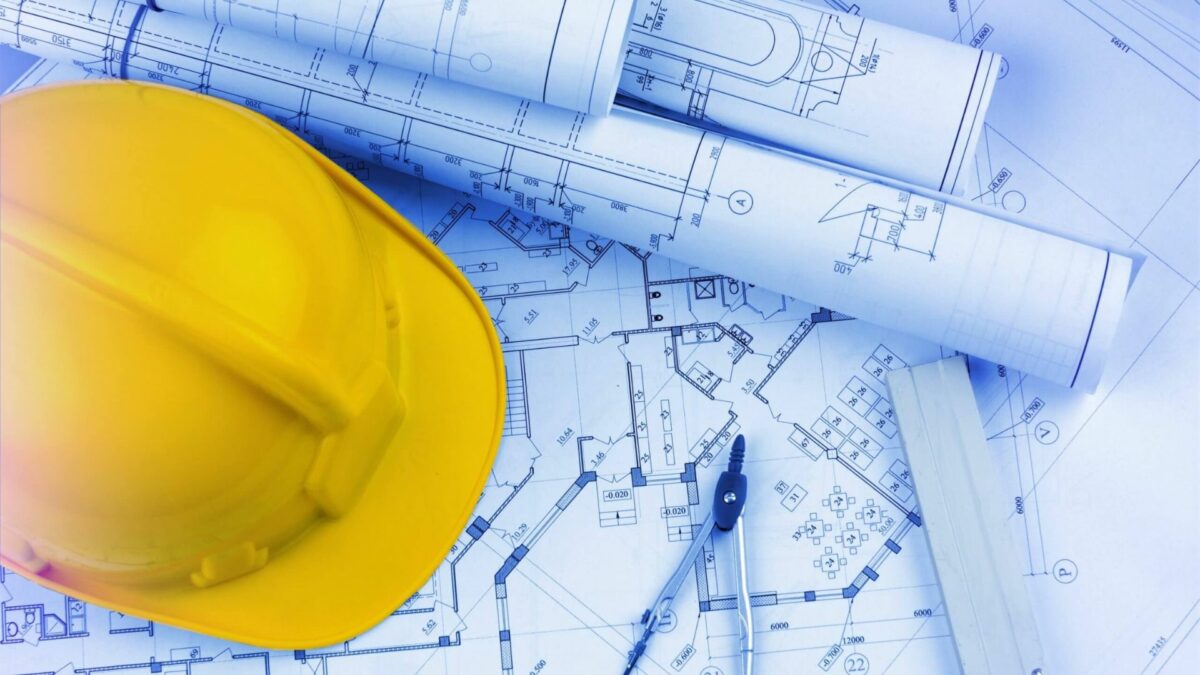Commercial Construction Management Tips: Optimize Efficiency
Imagine overseeing the birth of a skyscraper, watching as it rises from a blueprint to a towering testament of architectural prowess. That’s the thrill of Commercial Construction Management. It’s an intricate dance of planning, coordination, and execution, where a single misstep could mean costly delays or even project failure.
But don’t let the complexity intimidate you. With the right knowledge and tools, you can master the art of managing commercial construction projects. Whether you’re a seasoned professional looking to sharpen your skills, or a curious novice eager to learn, I’m here to guide you through the labyrinth of commercial construction management. So, let’s roll up our sleeves and delve into the fascinating world of creating commercial masterpieces.
Understanding Commercial Construction Management

Delving deeper into commercial construction management allows us to unravel the roles and responsibilities that constitute this complex process. In this immersive world, the capacity to bridge design and build, dealing with varied contracts, and handling diverse teams are pivotal. We’ll uncover the dimensions of this dynamic arena, focusing primarily on the role of the construction manager and the key responsibilities in commercial construction management.
The Role of a Construction Manager
A construction manager, a critical cog in the machine, facilitates the successful realization of commercial construction projects. Supervising activities from conception to completion, the manager navigates multiple lanes. For instance, coordinating with architects for seamless design integration, negotiating contracts, acquiring necessary permits, and ensuring timely project progress. Balancing art and commerce, a construction manager carves out every commercial structure’s unique journey.
As project helmsmen, they delve into intricate design details, yet stay cognizant of the big picture – the final vision for the construction project. Their sturdy grasp of construction science amalgamates with adept management skills, making them invaluable contributors to every commercial construction endeavor.
Key Responsibilities in Construction Management
The responsibilities of those operating within the domain of construction management are manifold. They’re the custodians of intricate processes and diverse roles.
- Conceptualizing and Planning: Insightful planning takes the center stage, streamlining processes, and minimizing setbacks. Construction managers work closely with architects and engineers, molding ideas into feasible plans.
- Contract Management: Dealing with contracts forms a significant chunk of responsibilities. They negotiate, finalize, and manage contracts with stakeholders, ensuring clarity and transparency in terms.
- Site Management: They oversee the construction site, ensuring workers’ safety, resolving on-site issues, adhering to zoning regulations, and maintaining high-quality standards.
- Budgeting: Keeping a firm grip on costs, managers spearhead budgeting initiatives, and cost control.
- Time Management: Unfazed by the pressures of ticking clocks, managers skilfully juggle deadlines, aligning resources and schedules optimally to stay in sync with project timelines.
Taking a closer look at commercial construction management reveals a turbulent yet rewarding universe. As we’ve seen, the role of a construction manager and the roster of responsibilities ingrained in construction management are staggering yet fascinating, inspiring awe for every commercial marvel we see around us.
Phases of Commercial Construction Management

Commercial construction management entails distinct phases, each of which features its own set of tasks, challenges, and goals. Here are the three critical stages:
Pre-Construction Phase
In the pre-construction phase, planning rules the roost. It’s here that the vision for the project transforms into a realistic blueprint. Activities in this phase span the generation of project designs, performance of feasibility studies, and creation of the project budget. For example, a construction manager might engage with engineers to plot out structural details or team up with architects for space planning. Moreover, this phase marks the procurement of required permits and the selection of contractors and vendors, setting the stage for the upcoming construction phase.
Construction Phase
The construction phase swings the project into full gear, inaugurating actual building work. From laying the foundation to adding the final finishes, this stage encapsulates all the physical construction activities. Alongside, the construction manager supervises the work progress, ensures adherence to project schedules, and monitors the budget to prevent cost overruns. For instance, a construction manager might coordinate the installation of a commercial building’s HVAC system or manage the pouring of concrete floors. This stage also covers the management of on-site safety, ensuring that all construction practices align with industry regulations and standards.
Post-Construction Phase
As the project nears its completion, the post-construction phase begins. It’s not just about wrapping up the project but also ensuring a seamless transition of the new building to the owner. Included in the post-construction activities are site clean-up, final inspections, and providing necessary documentation to the owner, such as warranties and operation manuals. An example of a key task in this phase is evaluating the project’s performance against the original plan and goals. The construction manager checks whether the project has met the stipulated budget, schedule, and quality standards, rectifying any discrepancies if they exist. Finally, this phase concludes with the project handover, marking the end of the construction manager’s role.
Essential Skills for Effective Construction Management

Having absorbed the steps and phases in commercial construction management, let’s delve into some vital skills required for efficient management in this field. These skills are pivotal in driving projects to successful completion and ensure the optimal use of resources throughout each phase.
Leadership and Team Management
Integrating different teams, each possessing unique skills and tasks, calls for more than coordination. It seeks strong leadership. As a construction manager, it’s beneficial to inspire and lead project teams effectively. Fostering a positive work environment, moreover, can result in productivity and morale boosts. Examples of this can be seen in numerous construction sites, where a harmonious crew operates seamlessly together even when dealing with meticulous tasks like concrete pouring or large-scale blueprint execution.
Budgeting and Financial Management
Given the essence of budgetary control in successful project execution, a construction manager’s prowess in budgeting and financial management proves crucial. This skill includes preparing sensible project budgets, keenly monitoring expenditures, and making sure the entire project stays within the financial bandwidth. An instance of budgeting in commercial construction could be distributing funds into material acquisition, labor costs, permit procurement, and contingencies.
Communication and Negotiation Skills
A commercial construction project is a hub for various stakeholders, including architects, contractors, and clients. Effective communication and negotiation skills facilitate smooth interactions and consensus-building among these parties. A construction manager with these skills expedites contract negotiations, ensures clear project objectives, and manages potential disputes. Consider, for example, a project delay due to weather conditions. The construction manager will need to communicate this delay, negotiate new deadlines with contractors and clients, and find a mutually agreed-upon solution.
Tools and Technologies in Construction Management

For successful completion of commercial construction management, various tools and technologies get utilized. These include CRM and project management software, Building Information Modeling (BIM), and drones for site surveillance.
Project Management Software
In my experience, project management software plays a pivotal role in commercial construction management. It is an essential digital tool that simplifies tasks, ensuring efficiency and accuracy in project handling. This software streamlines project planning, aiding task allocation, and improving communication among project teams for seamless coordination.
For instance, software such as Microsoft Project and Primavera can help construction managers schedule and plan tasks, manage budgets, and allocate resources effectively. These tools can also assist with risk management – identifying potential risks and strategies to mitigate them early in the project lifecycle, enhancing project success probability.
Building Information Modeling (BIM)
Another essential tool in modern commercial construction management is Building Information Modeling, often known by its acronym, BIM. Utilizing BIM can significantly transform project delivery by providing real-time 3D visualization of the project. This visualization aids in understanding the project outcomes before the onset of construction, minimizing potential hitches and ensuring design and construction align perfectly with the project’s vision.
For instance, BIM software like Autodesk Revit and ArchiCAD enables architects, engineers, and construction professionals to plan, design, construct, and manage buildings more effectively. Through BIM, stakeholders can visualize, simulate, and analyze how a building might behave before it is built, helping to improve overall project outcomes.
Drones and Site Surveillance
Drones, too, have carved a niche for themselves in commercial construction management. They offer an effective way of conducting site surveillance, providing effective aerial views of construction sites that can enhance site inspections and monitor progress.
For instance, drone solutions, such as DJI’s Phantom 4 RTK, bring accuracy and precision to construction projects by creating detailed and high-resolution aerial maps. Drones can detect any structural issues, monitor site progress, and even help in updating clients with real-time visuals, raising the bar in commercial construction management.
Overall, adopting these tools and technologies in commercial construction management results in efficient management and successful project outcomes.
Challenges in Commercial Construction Management

The following mentioned are the challenges that you face in commercial construction management. Let’s talk about them in deep to know each challenge.
Managing Deadlines and Delays
One significant challenge in commercial construction management lies in managing deadlines and dealing with unforeseen delays. In the construction industry, projects operate on stringent timelines. Weather conditions, equipment failures, changes in project scope, or suppliers’ issues often result in unexpected delays. These disruptions can significantly extend project timelines, sometimes beyond the stipulated completion date. For instance, a construction manager might plan a 3-month deadline for a project. However, an unexpected delay in the delivery of an essential component, say concrete mixers, can prolong the project duration and thus, the deadlines. Constructive strategies to mitigate such issues include proactive planning, effective communication, and the use of advanced project scheduling tools.
Ensuring Safety on the Construction Site
Safety stands as a prime concern in commercial construction management. Construction sites pose numerous potential risks and hazards, such as accidental falls, electrocution, or injuries from machinery. As an instance, in a multi-level construction project, workers might be susceptible to fall hazards while working at substantial heights. Establishing comprehensive safety protocols, conducting regular safety training sessions, and enforcing the use of safety gear are a few of the preventative measures to ensure safety.
Adapting to Regulatory Changes
We can’t overlook the challenge of adapting to regulatory changes in the field of commercial construction management. Regulations related to construction, environment, labor, and safety often undergo revisions and updates. For example, a new regulation might classify a commonly used building material as environmentally unfriendly, compelling the construction managers to find alternatives. Keeping abreast of these changes, understanding their implications, and implementing them into current practices, calls for a deep understanding of the industry and adaptability. Hence, remaining highly informed and adaptable emerges as a crucial strategy for overcoming this challenge.
Conclusion
Navigating the world of commercial construction management isn’t a walk in the park. It’s a complex role that demands strong leadership, meticulous budgeting, and effective communication. Embracing new technologies like project management software, BIM, and drones can significantly enhance project outcomes. But let’s not forget the challenges – managing deadlines, ensuring safety, and staying adaptable to regulatory changes. These hurdles can be daunting, but they’re not insurmountable. With proactive planning, a commitment to safety, and a willingness to adapt, I believe we can overcome these obstacles and continue to build a stronger future in commercial construction. The road may be tough, but with the right tools and strategies, we’re more than equipped to handle the journey.
Frequently Asked Questions
Q1. What are some of the essential skills necessary in commercial construction management?
Effective leadership, efficient budgeting, and clear communication are vital skills in commercial construction management. This helps ensure smooth operations throughout the project.
Q2. What role does technology play in construction management?
Technology plays a significant part in construction management. Tools like Microsoft Project and Primavera aid in task scheduling and risk management. Technologies like Building Information Modeling (BIM) provide 3D visualization, improving project outcomes.
Q3. How is Building Information Modeling (BIM) used in construction management?
Building Information Modeling (BIM), with software like Autodesk Revit and ArchiCAD, is used in construction management to provide 3D visualization. It increases efficiency in design and construction processes, leading to more successful project outcomes.
Q4. What is the role of drones in construction management?
Drones, such as DJI’s Phantom 4 RTK, contribute significantly to site surveillance and progress monitoring. They provide detailed, accurate images and data, leading to efficient project management in commercial construction.
Q5. What are the challenges in commercial construction management?
Challenges in commercial construction management include managing deadlines and delays, ensuring safety on construction sites, and adapting to regulatory changes, amongst other unforeseen circumstances.
Q6. What strategies can be used to overcome challenges in construction management?
Key strategies include proactive planning, effective communication, using advanced project scheduling tools, implementing comprehensive safety protocols, and staying informed and adaptable to regulatory updates. These strategies help tackle challenges and ensure successful project outcomes.

Leave a Reply